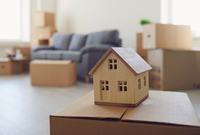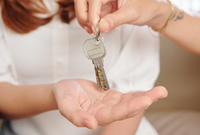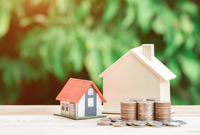Airbnb Changing Housing Affordability
With the average Australian Airbnb host now earning $7,100 a year from the site many people are changing the way they look at home affordability.
As Airbnb becomes more popular there is a growing trend of people factoring a properties dual living capabilities in their decision to buy.
“Dual living capabilities are certainly attractive to buyers. We see strong interest when those opportunities come up so we try to emphasise that in our listings.” Said PRD Bexley North Principal Frank Mazzotta “The ability to earn a bit of extra income really attracts some people.”
A suggested cause of the growing interest in properties with these features is the possibility of extra income being generated by hosting on Airbnb. Recently the 2015 National Housing Conference hosted a session titled ‘Can Airbnb Solve the Housing Crisis? The Sharing Economy and disruptive technologies.’ one of the topics broached in the session was the idea that choosing to host on Airbnb could positively affect home affordability.
“Home affordability isn’t just about whether or not you can pay off your mortgage, it includes all the costs of maintaining a home such as rates, insurance premiums, and utility bills.” Said PRD National Research Manager Dr Diaswati Mardiasmo. “The irregular income generated on Airbnb could feasibly go towards relieving these financial pressures, thus making your owning home more affordable.”
“The idea that an extra $7,100 a year could go towards mortgage repayments, or to covering rates and bills is giving people a sense of security, causing them to spend that little bit more than their budget would otherwise allow to get somewhere with more space.”
Although positive impact of the sharing economy towards home affordability is identified, PRD warns Airbnb could potentially be a double edged sword for home buyers.
"There is a danger that individuals will rely on earning the average of $7,100 as an Airbnb host, but for whatever reason fall significantly below that average. They could then find themselves in a situation where they can’t afford their repayments or the cost of maintaining their home.”
The sharing economy could be detrimental to the property market at large, as home buyers and investors take potential Airbnb earnings into account in their offering price.
“The notion that being an Airbnb host will allow you to spend more when purchasing a property is causing a bubble for houses with dual living options. People bid higher than they would otherwise, which pushes other interested parties bids up, resulting in the property selling for above asking price and thus further pricing out first home buyers.”
Already preliminary research suggests the rise of Airbnb in Australia has pushed up the median house price of properties with certain characteristics. Data presented by PRD at the 2015 National Housing Conference demonstrates that Brisbane properties listed as having dual living capabilities or potential sell for 23.4% more on average than houses with similar characteristics in the same area. The same is true for Sydney and Melbourne with average price increases of 21.2% and 9.0% respectively.
Airbnb hosts need to be vigilant of changing rules and regulations around sharing economy, both from a tax and zoning point of view. Current regulations are haphazardly varied, as the government plays catch-up with the disruptive technologies.
“You hear about people getting fined for renting out rooms on Airbnb, due to zoning restrictions. However these regulations are inconsistent between councils and states, and can make it hard for people to determine whether what they are doing is okay or not” says Dr Mardiasmo.
As more and more people sign on to be hosts on the popular site the more diluted and competitive the site will become. As hosting on Airbnb becomes more common, the average earning a home can expect from listing on the site is likely to decrease.
“The main thing people need to remember when considering hosting on Airbnb is that it is an irregular, unstable form of income.”.





